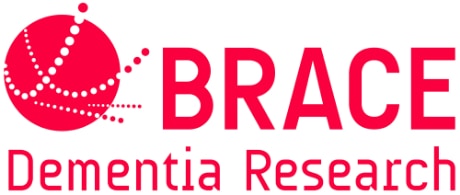Mild Cognitive Impairment
Mild cognitive impairment (MCI) is when a person starts to have problems with their memory or thinking. MCI is not dementia, although some people with MCI will develop dementia.
What is Mild Cognitive Impairment
Mild cognitive impairment (MCI) is when someone starts having problems with their memory or thinking. These changes can be noticeable, but they don’t usually stop a person from doing everyday things.
For some people, MCI might be an early sign of a condition that could lead to dementia. It is not the same as dementia. The condition can also be caused by other things like sleep issues or side effects from medications.
As people get older, especially from around 60 years old, it’s normal for some things like memory and focus to become less reliable. This doesn’t usually stop a person from going about their daily life. But for some people, these changes can happen more quickly, and they might start to feel worried.
If someone finds they are struggling with tasks they used to do easily, it could be a sign of mild cognitive impairment.
Symptoms
MCI symptoms can include changes in:
- Memory - forgetting plans, misplacing things, and having trouble remembering information.
- Language - struggling to find the right words, and becoming less fluent in conversations.
- Problem Solving - finding it harder to plan and complete daily tasks, and having trouble adapting to change.
- Visual - more difficulty with navigation, recalling directions, and judging distances.
Diagnosis
If you are concerned you may have MCI, the first step is to book an appointment with your GP.
1. GP appointment
The GP will check medications, the person's physical health and ask about their memory skills. They may also run some blood tests to check for physical health problems which may be causing the changes.
If the GP thinks the symptoms are related to memory or thinking, then they may refer the person to memory services.
2. Specialist appointment
A specialist clinician will ask about memory or thinking problems and how they might be affecting daily life. They’ll also want to know about other health issues or changes in a person’s life.
Next, they’ll ask questions to test memory and thinking. After this, they’ll try to explain what might be causing the problems.
In some cases, they may recommend a brain scan to rule out things like brain injury or a tumour. While not always needed, a brain scan can help provide more accurate information for a diagnosis.
If they’re unsure, they might suggest further assessments before making a diagnosis.
MCI is usually diagnosed when someone’s memory or thinking is worse than expected for their age, but it hasn’t yet impacted their ability to manage everyday tasks.
Treatment
Currently, there are no treatments or medicines that are licensed to treat people with MCI. There are also no treatments/medicines that can reduce the chances of someone with MCI from developing dementia.
For some people, symptoms can get better if the underlying health problem causing them is treated. This might mean being referred to another specialist, such as a mental health service or changes in medication to address the root cause of the issue.
For most people it is unclear what is causing the MCI and it will be a case of waiting to see what happens.
Usually, once a person has an MCI diagnosis, the person will be referred back to their GP.
